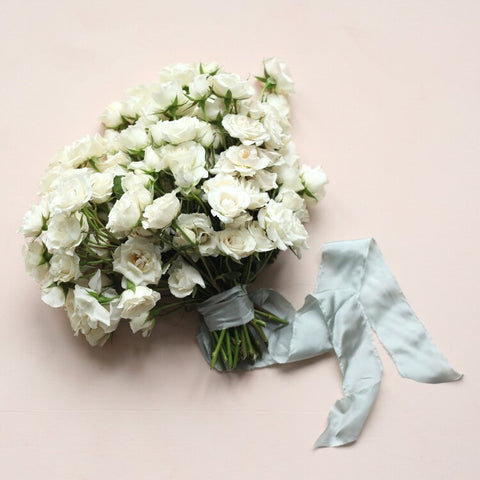Inspiration for your summertime bouquet. Just-picked or garden-style bouquets have a looseness and spontaneity to them. They often mix leafy branches with a variety of textures, large face flowers, and delicately detailed multi-bloom flowers. We love to cluster like flowers to mimic how they would grow in nature тАУ or in a garden. The overall silhouette is asymmetrical and a little wild. Informal, natural beauty.

BRIDE & BRIDESMAIDS
We used the same flowers for the bride and bridesmaids, distinguishing them with scale and number of focal blooms.

FLOWERS USED
peony
garden roses
scabiosa
hellebores
clematis
blueberry
nigela


DIY Bouquet Tutorial
Trying your hand at a DIY bouquet this season? Tap below for guidance. The right technique makes all the difference.
WeтАЩd love to see what you make!╠¤
╠¤What You'll Need:
- Japanese Floral Clippers
- Floral Stem Tape
- Wedding Workshop
- 2" Silk Ribbon, Midnight
- 2" Silk Ribbon, Seafoam
- 2" Silk Ribbon, Soft White










 ]]>
]]>






